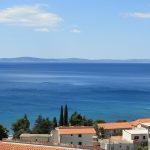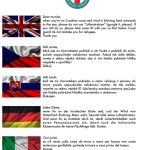ZAGREB, September 7, 2018 – Croatia has once again received strong support for its bid to join the Schengen area, Minister of the Interior Davor Božinović said after discussing Croatia’s progress in meeting accession criteria with European Migration, Home Affairs and Citizenship Commissioner Dimitris Avramopoulos in Brussels on Thursday.
Božinović and Avramopoulos discussed Croatia’s progress in meeting criteria to join the Schengen area of passport-free movement, including the pace at which the Croatian government plans to meet all technical conditions for membership of the Schengen area in the period until the end of the year, as well as migrations and the financing of technical equipment for the border, the Croatian ministry said.
Speaking to the press after the talks, Božinović said that Croatia had received support for admission to the Schengen area, underlining in that context progress made in controlling the EU’s external border. “After meeting Mr Avramopoulos, I can say that Croatia’s accession to the Schengen area is a shared interest of Croatia and the European Commission. The importance of what Croatia has been doing for the security of citizens, not only Croatian citizens but the EU’s as well, and for creating conditions to enable the Schengen area to restore the values that existed before the migrant crisis, has been recognised,” said Božinović.
Considering migration trends along the eastern Mediterranean route and the prevention of illegal border crossings, Commissioner Avramopoulos promised further financial support for Croatian police.
Božinović said that he met with understanding regarding increased operating costs of Croatian police.
The Ministry of the Interior said that, along with continuing the provision of technical equipment and protection of the external border, it was continuing to invest in building the capacity of the border police and their training. For that purpose, the ministry uses available funds from the Internal Security Fund from which funds have been approved for 22 projects worth around 18 million euro for enhancing, equipping and training border police, the ministry said.
It noted that progress had been made with regard to other aspects of the Schengen rules as well. All conditions in the field of data protection and firearms regulations have been met, while the implementation of recommendations regarding police cooperation, readmission, SIS, common visa policy and judicial cooperation in criminal matters is well under way and Croatia hopes its efforts will be recognised and valued with an appropriate political decision before it takes over the chairmanship of the Council of the EU in the first half of 2020, the ministry said.
Božinović and Avramopoulos also discussed the current migration trends, notably along the Western Balkan migration route. They reiterated the importance of a comprehensive European approach to migrations as determined in conclusions of the European Council of June 28 and in that context underlined the importance of holding a conference on migrations which the current Council of the EU chair Austria plans to organise in Vienna on September 12-14, as well as a coming discussion of EU heads of state and government at an informal summit in Salzburg to focus on migrations and security, and a conference on migrations to be held in Tirana in October.
The two officials also discussed the coming talks on the EU’s multiannual financial framework for the period 2021-2027 and supported the proposed increase in the financial envelope for migrations and security as well as the proposal to set up a separate fund for integrated border management.
Božinović thanked the EU commissioner for the recent allocation of additional 10.4 million euro for technical equipment for Croatia’s border police, a 6.4 million euro envelope for the application of the Entry Exit System, as well as for the EC’s additional funds supporting the efficient integration of migrants who have been granted asylum in Croatia.
Božinović also expressed hope that given the recent security and migration challenges, the EC would have to take into account, when allocating funds in the next multiannual financial framework, Croatia’s geostrategic position and its important role in protecting the EU’s longest eastern external border.







